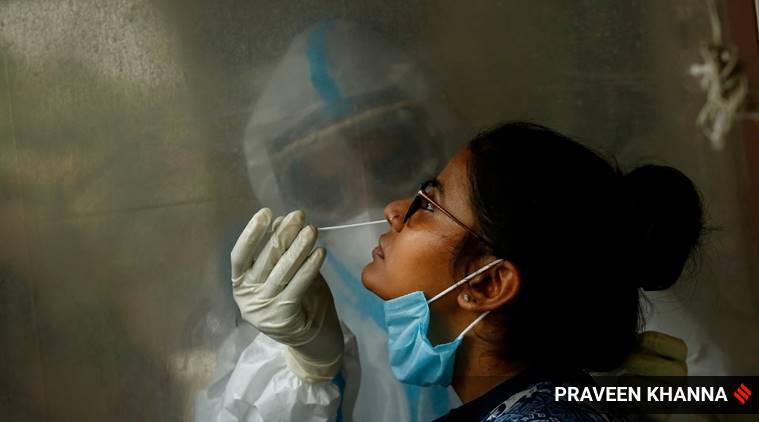More than a fortnight before the Indian Council of Medical Research (ICMR) wrote to clinical trial sites that it was “envisaged to launch” the Covid-19 vaccine “for public health use latest by 15th August 2020”, an expert committee of India’s drugs regulator had laid down four specific conditions that the company developing the vaccine candidate would have to meet.
The Drugs Controller General of India (DCGI) permitted Phase I and II clinical trials of Covaxin, but a Subject Expert Committee (SEC), which evaluates applications for clinical trials, said that Hyderabad-based Bharat Biotech “should submit results of the Phase I clinical trial to the DCGI before initiating the Phase-II study”.

Also, the SEC recommended after its meeting held on June 15, “clinical trial sites should have facilities to handle emergency situations such as anaphylaxis (a severe allergic reaction)”, and that “the investigators should have appropriate qualification & experiences suitable for the conduct of the study”.
Since healthy persons would be enrolled in the clinical trial, the SEC laid down that “RT-PCR test should be used as confirmatory test for Covid-19 during screening”.
The SEC put these conditions after the company presented data on “safety” and “immunogenicity” collected during pre-clinical trials conducted on rats, mice, and rabbits.
Experts said that these conditions, which are essential to the clinical trial, “will result” in the trial taking longer than ICMR’s unrealistic timeframe. The SEC set no deadlines.
Explained: ICMR claims it wants to launch Covaxin by August 15, here’s everything you need to know
Story continues below this ad
An investigator who is part of the trial said “immunogenicity” – the ability to provoke an immune reaction – will be the key aspect to be examined, and which will decide if the trial can move from Phase I to II.
“Even with Covid-19, those with a mild infection don’t have that many antibodies. What immune response we will get, is the key question. This process may take a few months. You have to examine if the vaccine is able to produce enough neutralising antibodies to fight the virus,” the investigator said.
“Even if the vaccine produces antibodies, we need to examine if they sustain for some time. The antibodies may last only for a few weeks. You can’t have a vaccine that has to be given every few weeks,” the investigator said.
READ | ICMR dials down on Aug 15 vaccine date: ‘Letter to cut red tape’
Story continues below this ad
Referring to the first crucial condition – on submitting the results of Phase I of the clinical trial – put by the expert committee, another investigator said the first phase was likely to take “at least three months”.
“Diverse populations have to be enrolled,” this investigator said. “We have to check if the vaccine is equally effective in the young, elderly, and people with comorbidities. There is no way this can be done in a month. Besides the analysis of the data, the recruitment for the first phase will go on till October.” The process “cannot be fast-tracked”, the investigator said.
“Examining the vaccinating-related side effects will be the most crucial. There is vaccine-related enhanced respiratory syndrome, where you have vaccine-led infections of lungs and airways that cause an immune reaction. Then, you have a reaction because of the vaccine, which enhances the infection. This happened during the development of the vaccines for HIV and measles. The vaccine produces antibodies that are not sufficient – and they enhance the severity by allowing more of the virus to enter the cell,” he said.

 At a testing centre in New Delhi
At a testing centre in New Delhi






